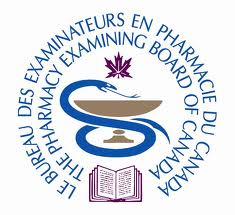Compounding Pharmacy: Preparations compounded with Liposome
What is the Liposome?
It is a lipid bilayer (consists of phospholipids identical to cell membrane phospholipids) surrounding an aqueous space.Liposome types:
A-Unilamellar consisting of phospholipids bilayer enclosing aqueous layerB-Multilamellar vesicles (MLV) consist of several (up to 14) lipid layers(in an onion-like arrangement) separated from one another by a layer of aqueous solution
Applications
- Release their contents when they reach a specific temperature.
- Release their contents at a specific pH value.
- Target certain tissues or cell types by changing the types of lipids in the liposome.
- Target tissues, cell types or specific proteins by attaching antibodies to the surface.
- Avoid certain tissues or cells by attaching complex sugars to the surface.
- Evenly distribute fat-soluble (oil-like) compounds such as certain vitamins, antioxidants, antibiotics, flavors, etc. which often can’t be mixed in water-based products including most foods.
- Fuse with cells, which is important in delivering DNA to a cell.
- Serve as model cell membranes making it easier to study specific cellular processes and how certain molecules, such as drugs, interact with cells.
- Protect compounds from acidic and enzymatic degradation in the stomach and intestine by using certain molecules to coat the liposome.
- Protect compounds such as vitamins and antioxidants from premature oxidation for increased shelf-life.
- Enhance the intestinal absorption of compounds by coating with certain molecules.
- Carry drugs across the nasal mucosa (nasal drug delivery).
- Deliver drugs directly to lung tissue by inhalation of the liposomes.
- Carry fluorescent dyes or other types of molecules which allow the liposomes to be tracked in the system to which they are added.
Dermatological uses
Preparation of liposome micro-encapsulated drugs
1-With cream, ointment, and gelLiposomes added to cream, ointment or gel and mix till complete solubility occur
2- with tablets
a- Decoating of the tablet if it was sugar-coated with phosphate buffer or saline or distilled water to prevent microencapsulation of sugar particles by liposome
b- Grinding of the tablets
c- Add liposome to the tablet and mixing then leave for 3 hr
(incubation period that allows micro-encapsulation of all the active ingredients in liposome)
d- Add cream, ointment or gel
N.B. liposome increase penetration capacity by 20 to 30 fold
Doses
Ointment 5ml/ 10gmCreams 7ml/ 10gm
Lotions
1- Alcoholic 10ml/100ml
2- aqueous 20 ml/100 ml
3- PEG 20 ml/100 ml
4- PG 25 ml/100 ml
preparations
1-Wound dressing preparation
- Mephincol 2 cap
- Liposome base 10 ml
2-Preparation for 2nd and 3rd degree of burn
- Mephincol 4 cap
- Verapamil 80 mg 30 tab
- Liposomal base 30 ml
3-Preparation for 3rd degree of burning
- Collagenase oint. 4 tubes
- Verapamil 80 mg 30 tab
- Liposomal base 30 ml
4-Preparation for Scar and Keloid
- 1st step (Till degradation of fibrous tissue occur)
- 5-fluro uracil 4 amp
- Liposome 20 ml
- 2nd step
- 5-fluro uracil 4 amp
- Verapamil 80 mg 20 tab
- Liposome 20 ml
5- Preparation for ulcer
- Dinitra 5 mg 5 tab
- Metronidazole 250 mg 4 tab
- Lignocaine 1 tube (if needed)
- Liposome 30 ml
uses
- Bed Sores
- Lepromatous ulcer
- Diabetic foot
6- Preparation for anal fissures
- Glycerin.T.N 0.2 %
- Liposome base 20 ml
- Lignocaine 1 tube
7-Preparation for Acne
(A)
- Salicylic. a 4 gm (keratolytic)
- Sulfur 6 gm (keratolytic with antibacterial)
- Resorcinol 4 gm (antibacterial and antifungal)
- Zinc oxide 12 gm
- Calamine 8 gm
- Glycerin 30 ml
- Alcohol 70% 35 ml
- Liposome base 35 ml
- Benzoyl peroxide 5%
- Mephenicol 4 cap
- Liposome base 20 ml
Uses
1- Used for Cystic Acne
2- Benzoyl peroxide has a dual action
- ↑ turnover of epithelial cells
- Decompose → oxygen → killing of Propionibacterium acne
8-Preparation for fungal infection T.versicolor
A)- Clotrimazol.oint 20 gm
- Liposome base 10 ml
- Ciclopirox 1 %(batrafin) 3 bottle
- Diprosalic lotion 1 bottle
- Liposome base 15 ml
- Terbinafine (Lamisil) 20 gm
- Liposome base 10ml
9-Preparation for diffuse Alopecia
Minoxidil powder 2%Liposome base 30 ml
(10)Preparation for Skin aging
A) Male- Testosterone (Sustanon) 8 amp
- Phenytoin 100 mg 5%
- Eudyna oint 10 gm
- Liposome base 25 ml
- Estrogen (Ovestin) 20 Tab
- Phenytoin 100 mg 10 cap
- Eudyna oint 10 gm
- Liposome base 25 ml




Comments